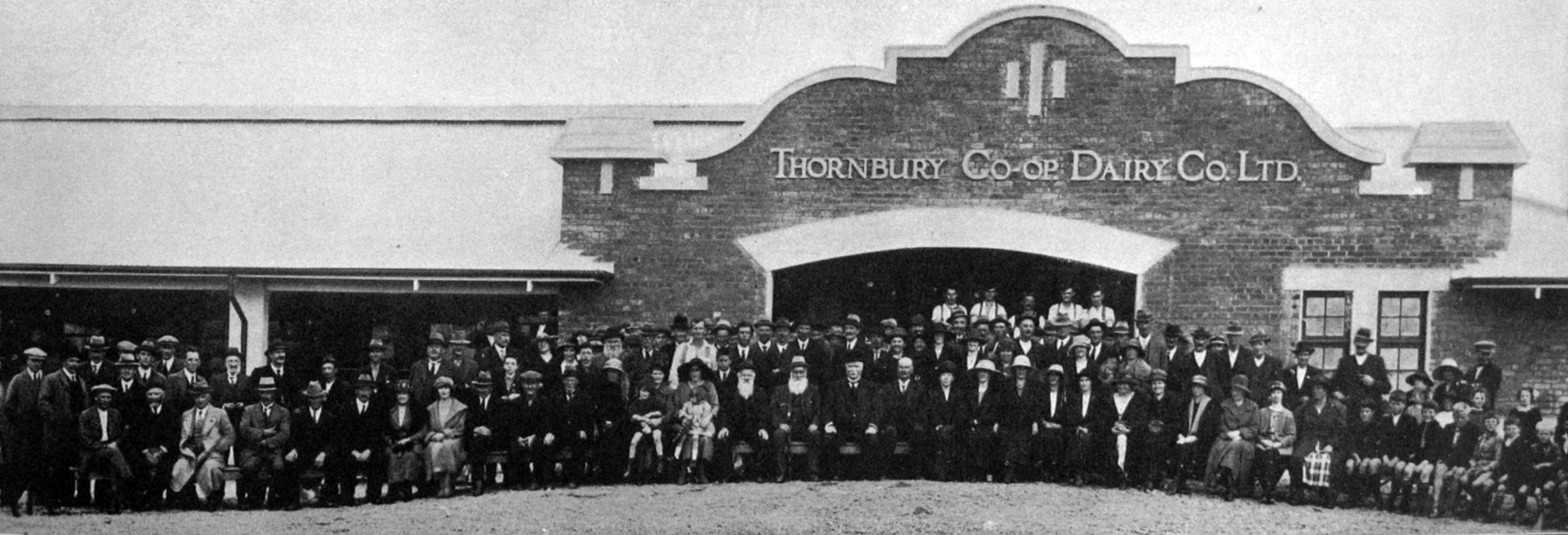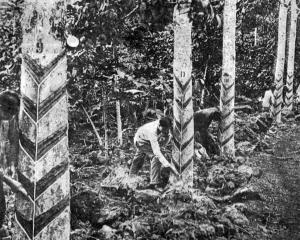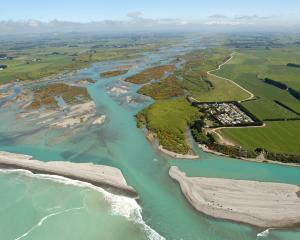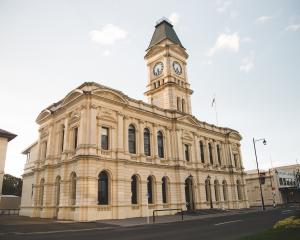
Every little hamlet and village through which the Prime Minister passed was decorated for the occasion, and little groups standing by the roadside to welcome and show their regard for him were quite common. Townships were festooned, and every school passed displayed the Union Jack in a prominent position. At Thornbury the township was gaily festooned in honour of the visit, and well over a thousand persons had assembled to do honour to Mr Massey. The principal item on the programme here was the official opening of a new dairy factory, which Mr Massey had been asked to perform. Mr Massey, after returning thanks for the enthusiastic welcome accorded him, said he had made up his mind recently that he would see as much of Southland as lay in his power.

From what he had seen of Southland he was convinced of its prosperity. Referring to the dairy factory, he said it was built on modern lines and was equipped with the most up-to-date of plants. He recognised that New Zealand was the dairy farm of the Empire. The fact that we had sent away £18,000,000 worth of butter and cheese last year was proof of that. Total exports were £51,500,000, which was a record for the dominion. (Applause.) What was wanted in this country now was more population. We could do with 1,000,000 more people at the present time, and the Government was doing its best to encourage the right class of people to emigrate from Great Britain. The country had done well during the year, and so long as it was peopled by such worthy descendants of the Anglo-Saxon and Celtic races it could not help doing well. The meeting wound up with three ringing cheers for the Prime Minister and the singing of the National Anthem.
Boer War pension wanted
Dunedin branch of the South African Veterans Association was requested by the other centres to draw up a general circular dealing with the proposed military pension for South African veterans on the same lines as the Maori war veterans, with a view to its being submitted to the other branches in New Zealand and, after approval, to the individual members of Parliament.
Kelp holds botanist’s attention
The great brown kelp which attaches itself to exposed rocks and steep cliffs on New Zealand coasts, forming banks of seaweed cuffed by the waves, has a peculiar fascination for every seaside visitor, but a greater fascination for students sufficiently equipped by training to become acquainted with its structure. Miss M.E. Herriott, Christchurch, is the first New Zealand botanist, however, to supply an account of its anatomy. The holdfast disc that adheres to the rock like a leather sucker has been compared to the tuberous roots, or tap-roots, of higher plants. It seems to be a storehouse for reserves for food.
Movie-making a job for women
The placing upon the market of a simplified kinematograph camera and lantern for the amateur draws attention to a new profession peculiarly suited to women. This is the making of kinematograph records of weddings, and of children at various periods of their life. Most would like to possess a more lifelike reminder of their wedding and of their children than the ordinary "still" photograph, and while, no doubt, some amateurs will take advantage of this clever invention, the majority of people will prefer to have their films made for them. Any girl who is a fairly good amateur photographer can very quickly learn to use a "movie" camera.
— ODT, 8.4.1924 (Compiled by Peter Dowden)












